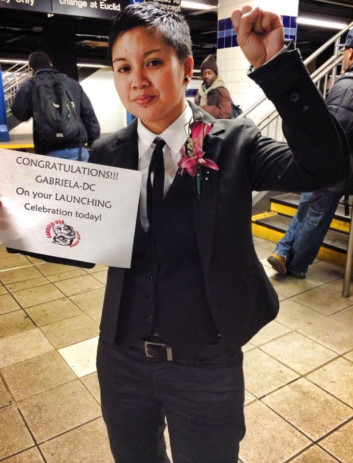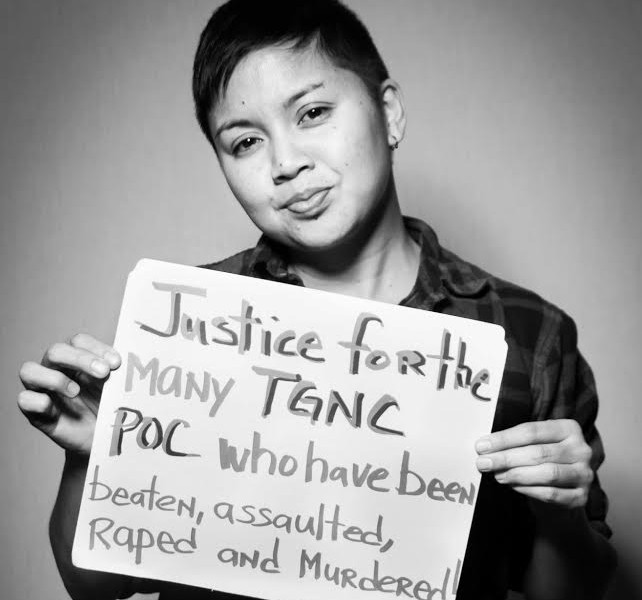This is part of the author’s LGBTQIA encounters in New York City (and beyond), where he is a State Department Fellow/Community Solutions Leader of the 2014 Community Solutions Program (CSP), a program of the Bureau of Educational and Cultural Affairs of the United States Department of State, and implemented by IREX.
Sometime in 2006, Irma Salvatierra Bajar saw a film that tackled the Hacienda Luisita Massacre. “It opened my eyes with the injustices that are happening in the Philippines,” she recalled. This realization dawned on her that in the Philippines, “corruption is not only because of a corrupt system, but in the end, it’s because of… American imperialism. As a Filipino-American, I knew I had to do something about it.”
Irma joined Pinay sa Seattle (which eventually became GABRIELA Seattle), and she was introduced to the National Democratic Movement.
“From then on,” she said, “there was no coming back.”

“There’s a lot of hurt, and a lot of hurt people. We need to work together to really talk about the different forms of support in the community. We need not to hurt, but to support each other,” Irma Bajar says.
When Irma moved to New York in 2008, she continued doing her work by getting involved with Filipinas for Rights and Empowerment (which eventually became GABRIELA New York). She started as the organizing director, becoming its chairperson a year later.
Irma is proud to say that under her leadership, “we became more visible in accepting LGBTQ members.” This as the base of the group doubled.
In 2009, GABRIELA USA became an official partner of GABRIELA Philippines. There are now nine international chapters (including US). Irma serves as the vice chair of international relations at GABRIELA USA. Irma, by the way, also serves as the program coordinator for membership of the Audre Lorde Project (ALP), which focuses on people of color (POC).
The fire that feeds Irma’s activism is all because of “my personal experience.” “With the church telling me (I am sinning). With my grandmother saying I was choosing the way of the devil. Being spat at. Being held-up at gunpoint…” For Irma, a lot of this is because of gender profiling.
And so “for me, it’s all about creating a community,” she said. Being an LGBTQ community organizer is therefore a political act. “Being LGBTQ is another layer of oppression. I want to be able to create a society that does not require people to have to fight for respect.”
Irma added: “It is liberating if you can hold hands, can get married, can feel safe in your own community. And it’s tiring (when) everyday you have to put an armor (to defend your existence).”
Irma believes that “the LGBTQ community needs to include trans issues in the discussions,” she said, stressing that “these are often forgotten.” For Irma, transgender people and gender non-conforming people “should be at the forefront of the struggle.”
All the same, Irma is cognizant of – and she even admires – the LGBTQ community’s resilience. “We thrive in spite of the difficulties that we face every day,” she said.
It is in community organizing that Irma finds a sense of purpose, seeing the value of mobilization of the people at the grassroots. This is why, she said, she admires organizations like ALP and FIERCE (in New York) for “really leading programs and campaigns for the safety and liberation of people (including LGBTQ people).”
“There’s a lot of hurt, and a lot of hurt people. We need to work together to really talk about the different forms of support in the community. We need not to hurt, but to support each other,” Irma ended.





























































